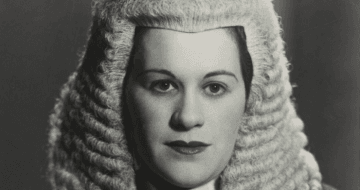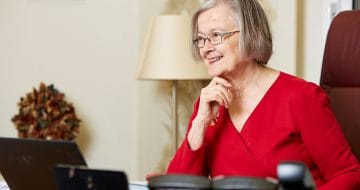As part of a range of measures put forward by senior French and British figures to improve progression of women in law

A leading judge has called on the legal profession to do more to improve the high attrition rate among women in law.
“We need to address issues of unconscious bias and I would recommend formal training to all law students up to the most senior judge,” said HHJ Kaly Kaul QC during a roundtable discussion held yesterday evening at the French Residence in Kensington Palace Gardens, adding that this could be assessed year-on-year.
Reflecting on her own experience in law, as a BAME (Black, Asian and minority ethnic) woman, the former criminal barrister noted a positive shift and attitudinal change towards female progression in law — it’s no longer the case that “they can fit in a broom cupboard”, she quipped.
But there’s still a lot to be done (particularly at the upper end of the hierarchy) and alongside formal training, the circuit judge added that female empowerment does not have an “anti-male ethos” so we need to champion one another (men included) as and when possible, whether that’s through small acts such as offering guidance or motivation to pursue a promotion or providing a reference.
Kaul was joined by other French and British experts at last night’s ‘Women in Law: a Women’s World?’ panel session, chaired by Oxford University law professor and Old Square Chambers barrister Sandra Fredman. They exchanged contrasting perspectives from both the French and English legal professions on the various barriers prohibiting women from succeeding and what can be done to address rising concerns.
Linden Thomas, president of Birmingham Law Society, who also featured on the panel, observed that women make up 68.8% of students at undergraduate law degree level — outnumbering their male counterparts by two to one — but less than half, 30.8%, make it to partner.
She shared a number of ways the profession can do more to help women progress. These included ensuring work is allocated on merit rather than gender because there’s no such thing as an inherently ‘male’ or ‘female’ job which extends to the instruction of barristers; networking doesn’t necessarily have to take place “over a pint or on the golf course” since this may preclude women; and, finally, that shared parental leave should match maternity leave in the workplace, and when women return from maternity leave that they are offered adequate support to build their caseload back up. She added:
“My biggest bugbear is not having better flexible working mandates — law firms and chambers have policies but not practices and this could even prejudice work allocation if a lawyer hasn’t had the appropriate ‘facetime’.”
At the French Residence this evening for a roundtable on ‘Women in Law’ ??⚖️ — a panel of French and British experts are exchanging views on the various barriers (‘unconcious bias’ and ‘unfair work allocation’ etc.) prohibiting women from succeeding in the legal profession ?? pic.twitter.com/iZtEAop5SA
— Legal Cheek (@legalcheek) January 27, 2020


